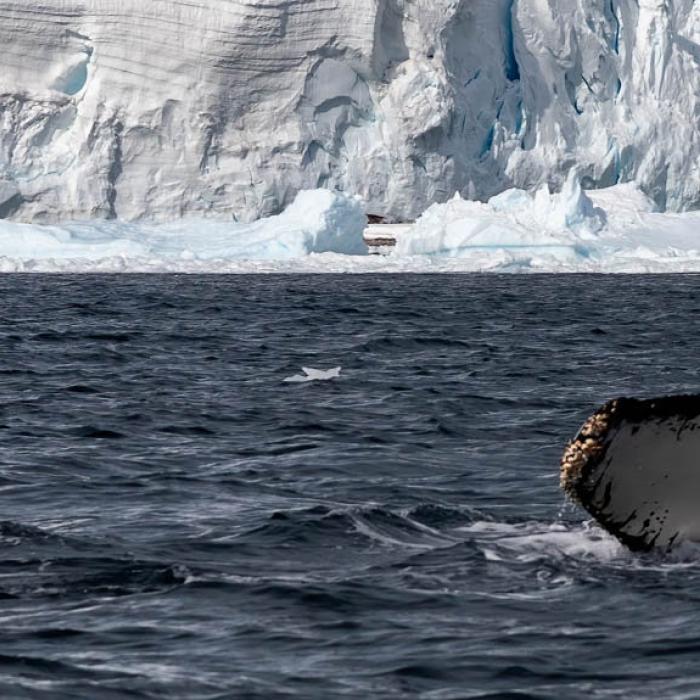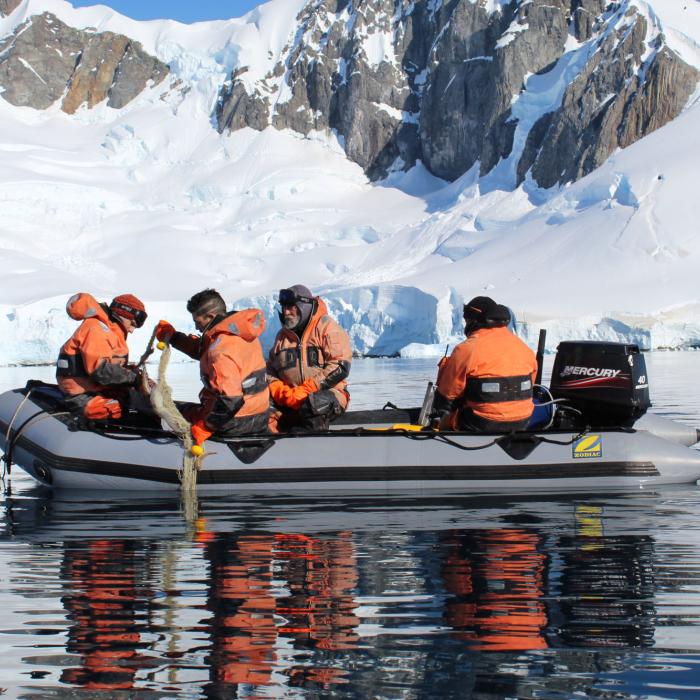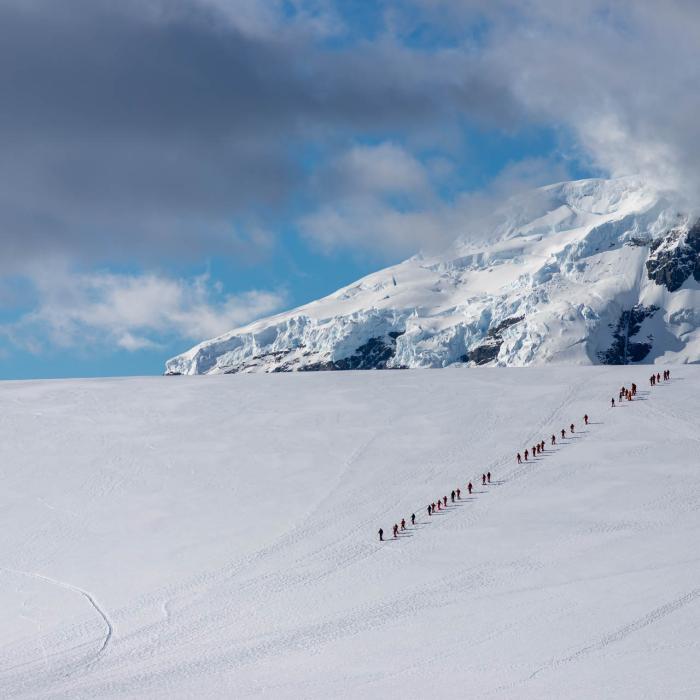
Happy Birthday IAATO - 30 Years Strong!
On August 18, 1991, in an unprecedented move, tour operators who, for many years, had operated environmentally sound expeditions to Antarctica, founded the International Association of Antarctica Tour Operators (IAATO).
IAATO’s inception followed hot on the heels of the creation of the Antarctic Treaty’s Environmental Protocol. The Protocol established rigorous standards beyond those already outlined in the Treaty of 1959 and provided the framework for the continued protection of the Antarctic environment. It was officially signed in October of 1991.
Joining together enabled IAATO’s founding tour operators to pool their resources and work with their respective governments to develop substantive regulations and guidelines compatible with the best practices that were already being followed in the field.
And so began IAATO’s mission to advocate and promote the practice of safe and environmentally responsible private-sector travel to the Antarctic. 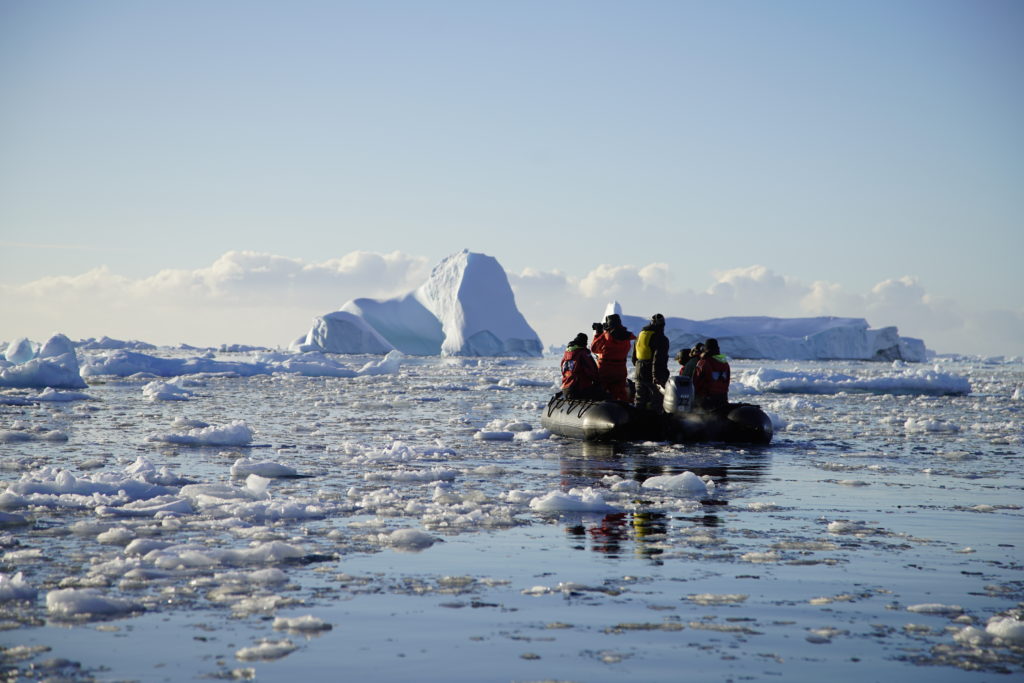 It’s no secret that Antarctic tourism can be a topic of much debate today, but IAATO’s reputation as a leader in the development of standard operating procedures and implementation of best practices, combined with its operational track record, demonstrates that environmentally responsible tourism is possible in remote and precious wilderness areas.
It’s no secret that Antarctic tourism can be a topic of much debate today, but IAATO’s reputation as a leader in the development of standard operating procedures and implementation of best practices, combined with its operational track record, demonstrates that environmentally responsible tourism is possible in remote and precious wilderness areas.
Many of the protocols that visitors to the white continent follow exist because of the seven operators who gathered three decades ago to form our unique organisation. From the start IAATO members have diligently followed the tenets of the Antarctic Treaty, over the years adding our own robust policies to the myriad guidelines we follow. We’ve introduced mandatory observations for our operator members, slowed down for whales, commissioned research to mitigate the risk of introducing pathogens and non-native species and banned the recreational use of drones in the unique and wildlife-rich coastal areas of Antarctica – and that’s just the tip of the iceberg! 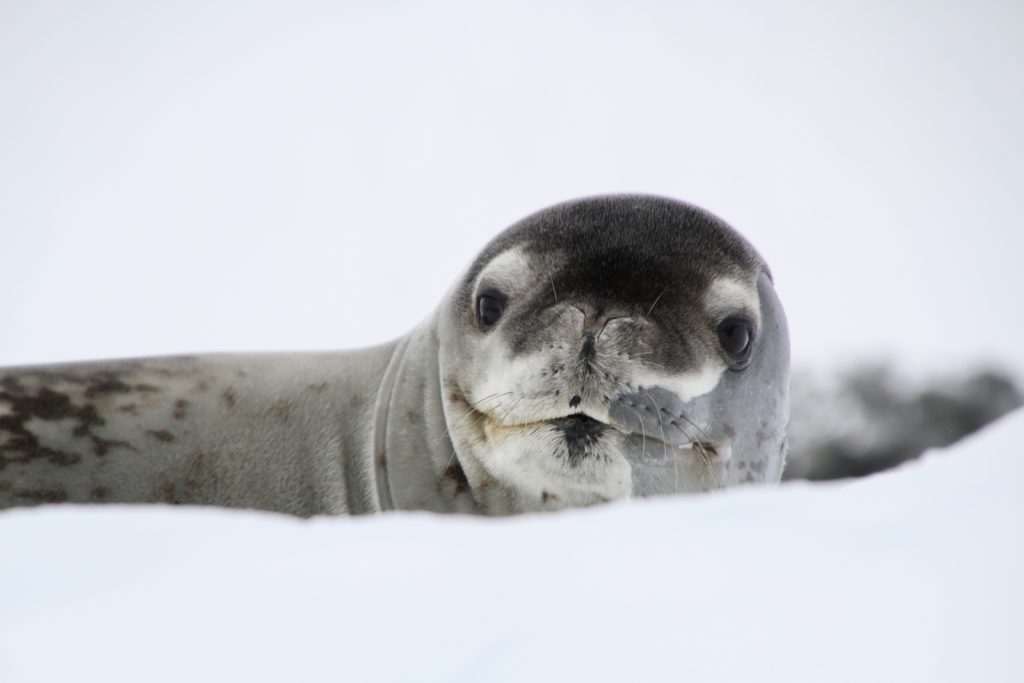 Each season, between November and April, IAATO member companies provide logistic and scientific support to scores of researchers and station personnel from national Antarctic programs and Antarctic organizations. This includes providing platforms for collecting data in the field and/or transporting personnel, equipment and supplies to stations, research camps or other vessels. With regular departures to the Antarctic Peninsula and South Georgia throughout the season, IAATO vessels provide a cost-effective transport link and often engage in charter work for national Antarctic programs or other projects.
Each season, between November and April, IAATO member companies provide logistic and scientific support to scores of researchers and station personnel from national Antarctic programs and Antarctic organizations. This includes providing platforms for collecting data in the field and/or transporting personnel, equipment and supplies to stations, research camps or other vessels. With regular departures to the Antarctic Peninsula and South Georgia throughout the season, IAATO vessels provide a cost-effective transport link and often engage in charter work for national Antarctic programs or other projects.
We’re also proud to fund the $15,000 USD IAATO Antarctic Fellowship, an investment in the professional development of talented early career scientists and researchers which aims to further the understanding of human presence in Antarctica. 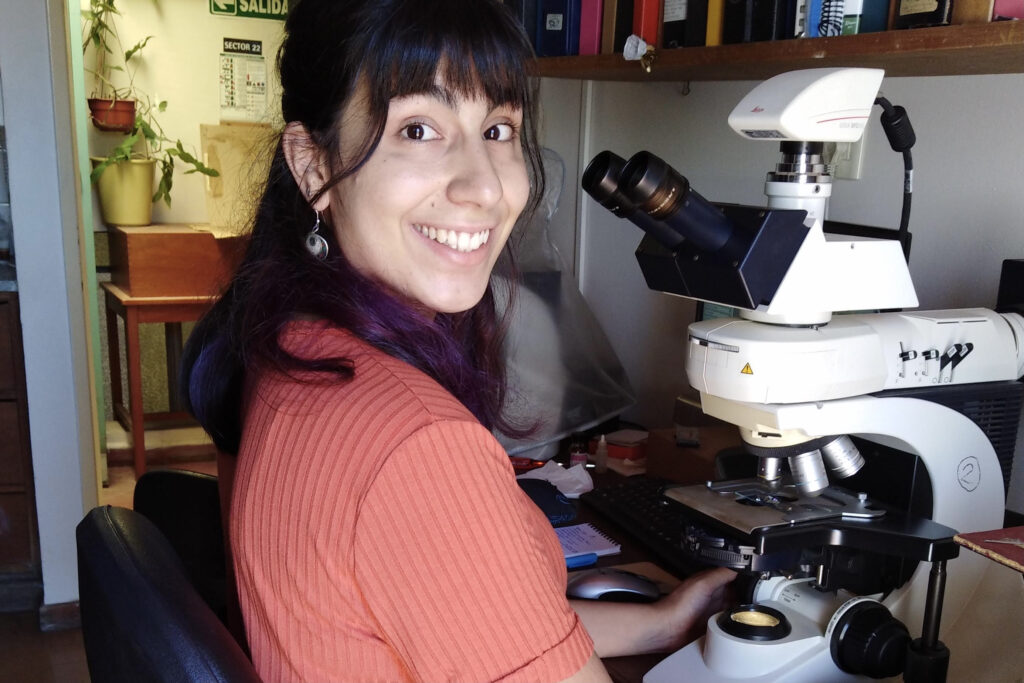 Joining our polar family is not just a matter of signing up and paying the membership fee. In line with our high standards, would-be members must prove they’re as committed to our mission as we are before they can join the fold. This means a detailed application, passing the IAATO online staff training assessment, and delivering a presentation before IAATO’s veteran members after which their suitability to join will be voted on. Once a Provisional Operator gets their foot in the door, they are subject to a mandatory observation during their first Antarctic season by an IAATO-appointed observer.
Joining our polar family is not just a matter of signing up and paying the membership fee. In line with our high standards, would-be members must prove they’re as committed to our mission as we are before they can join the fold. This means a detailed application, passing the IAATO online staff training assessment, and delivering a presentation before IAATO’s veteran members after which their suitability to join will be voted on. Once a Provisional Operator gets their foot in the door, they are subject to a mandatory observation during their first Antarctic season by an IAATO-appointed observer.
Today, our membership is truly international. Member companies hail from Argentina, Australia, Belgium, Canada, Chile, France, Germany, Italy, Japan, Netherlands, New Zealand, Norway, People’s Republic of China, Russia, South Africa, Sweden, Switzerland, United Kingdom, United States, and the U.K. Overseas Territory-Falkland Islands (Islas Malvinas).
There are ship and land operators, ship agents, travel agents, tourism bureaus, travel companies that charter ships and airplanes from existing operators, conservation organizations and expedition management companies. 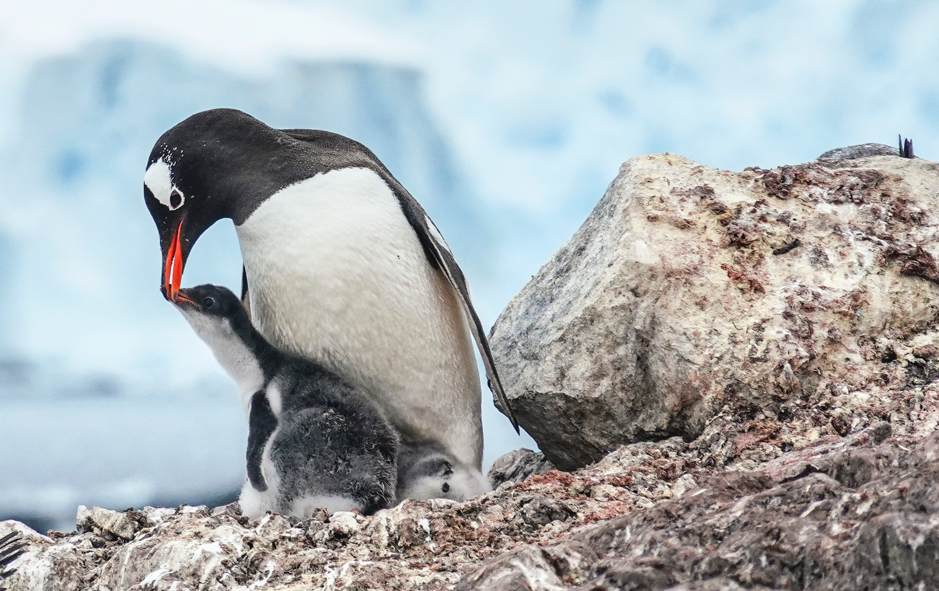 IAATO members subscribe to the belief that the ultimate protection and conservation of Antarctica largely depends upon the sound policy to which all Treaty nations adhere. This, coupled with the power of Antarctic Ambassadorship – the love and respect for the continent, the desire to educate others about it and the willingness to advocate for its protection – all things we believe are instilled within those fortunate enough to have witnessed its majesty first-hand.
IAATO members subscribe to the belief that the ultimate protection and conservation of Antarctica largely depends upon the sound policy to which all Treaty nations adhere. This, coupled with the power of Antarctic Ambassadorship – the love and respect for the continent, the desire to educate others about it and the willingness to advocate for its protection – all things we believe are instilled within those fortunate enough to have witnessed its majesty first-hand.
Sir David Attenborough, renowned naturalist and broadcaster, probably put it best when he said: “No one will protect what they don’t care about; and no one will care about what they have never experienced.” 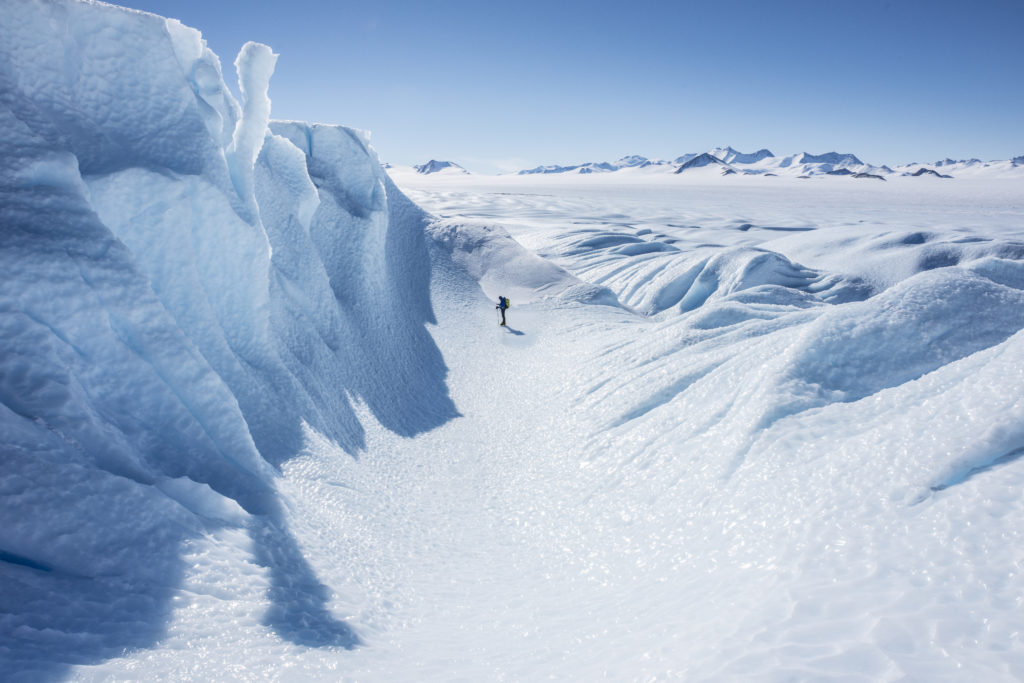 As we turned 30 this year, a milestone which gives cause to pause and take stock, we talked about how we can take our mission to the next level, inviting those outside the IAATO family with a love for Antarctica, to share in it. We decided to launch Antarctic Ambassadorship Day – an international day to celebrate, honour and inspire Antarctic Ambassadors.
As we turned 30 this year, a milestone which gives cause to pause and take stock, we talked about how we can take our mission to the next level, inviting those outside the IAATO family with a love for Antarctica, to share in it. We decided to launch Antarctic Ambassadorship Day – an international day to celebrate, honour and inspire Antarctic Ambassadors.
Antarctic Ambassadorship has been a cornerstone of IAATO’s mission since its inception. It’s our belief that by leading expeditions to Antarctica with responsible environmental practices at their core, visitors return with a greater understanding of its environment, its value to global science and how changes to the region can impact us all.
For some, the effect Antarctica has had has been life-changing. New Yorker Mandy Speers Volpe, who won our 30thanniversary logo design competition in January, was so moved by her visit in 2018 that when she and husband Noel arrived home, they began transitioning to plastic-free living; from ditching the single-use water bottles at the gym to saying no to plastic in everyday life. Mandy (pictured below) shared her experience with anyone who would listen, explaining the network of organisations that support the protection of Antarctica and the measures visitors must follow when travelling there in the hopes of inspiring others into change. 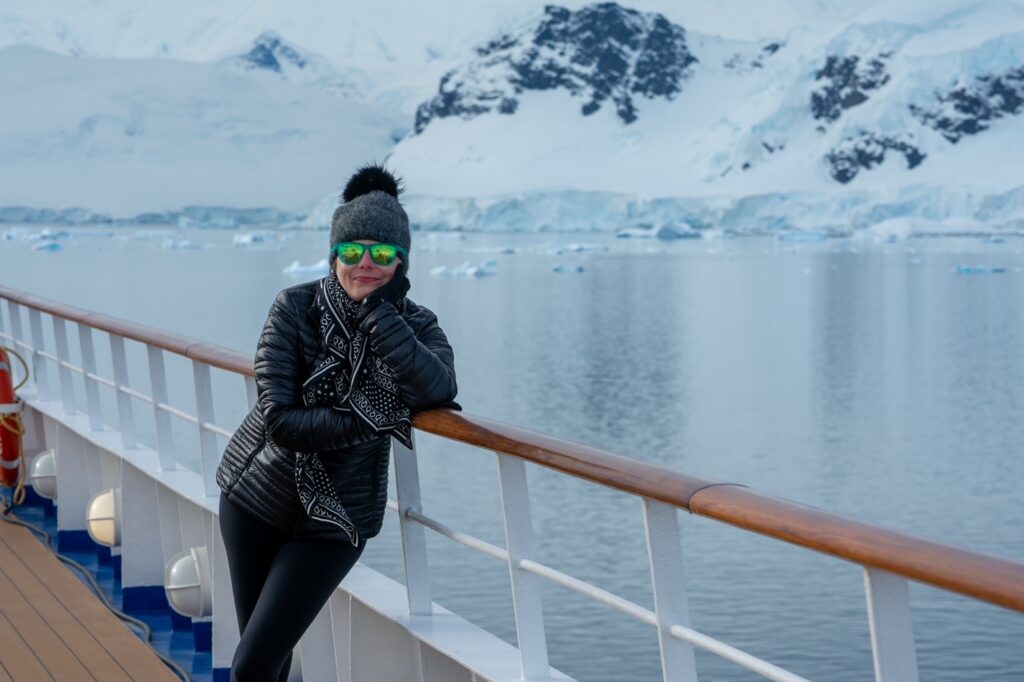 The last 18 months have given us the chance to focus on formalising our ambassadorship concept and turn it into a measurable program which goes beyond the activities which take place South of 60. Expect interactive resources, inspiring activities and Ambassador-generated content in the months to come as we gear up for the inaugural Antarctic Ambassadorship Day.
The last 18 months have given us the chance to focus on formalising our ambassadorship concept and turn it into a measurable program which goes beyond the activities which take place South of 60. Expect interactive resources, inspiring activities and Ambassador-generated content in the months to come as we gear up for the inaugural Antarctic Ambassadorship Day.
The life of the Association has not been without its trials, and the COVID-19 pandemic of course created its fair share of challenges. But our mission has endured, and the number of companies committed to it is growing. We’re grateful to our stakeholders and polar friends for helping us grow and evolve over the last three decades.
There is still much to be accomplished and our efforts post-pandemic will be focused on managing tourism growth, growing our Ambassador family and enhancing our protocols to make us even better at what we do.
